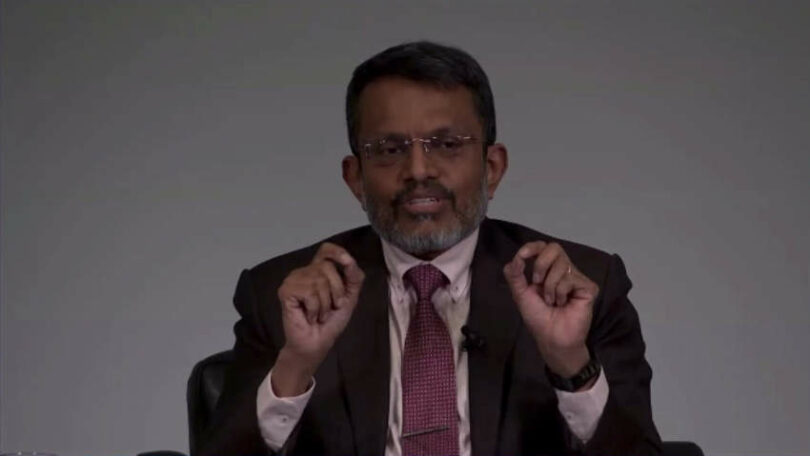During today’s BIS Innovation Summit, two central bankers discussed bank deposit tokens as the heart of future money. Ravi Menon, who leads the Monetary Authority of Singapore (MAS), called the current banking system ‘archaic’ in its settlement processes.
He sees a continuation of the current two-tier monetary system in a digital currency world. Central bank digital currency (CBDC) will be at the core, and commercial bank deposit tokens will make up the bulk of digital currency money.
He mentioned a potential third leg in stablecoins, but he is not convinced about how they can be securely backed. The USDC stablecoin lost its peg the day before the session was recorded on March 12 because of the failure of the Silicon Valley Bank. Nonetheless, Menon acknowledged that stablecoins could add to the diversity of the system. This digital currency monetary system will coexist with the current one.
CBDC is not likely to be the primary form of payment, just like cash is not today. Currently, there is ten times more private money than there is public money and that proportion is envisaged to remain the same.
Bank deposit tokens
Menon described deposit tokens as expressing a part of your bank “deposit in digital form, where our ownership rights are embedded together in the form of a token and it can be transacted on a blockchain or a distributed ledger.”
We’ve seen several different definitions of deposit tokens, varying from Menon’s description, to the requirement to be on a public blockchain, to the deposit being native to the blockchain. Other definitions are the equivalent of a stablecoin with ringfenced segregated money as opposed to deposits where the funds are lent out or invested.
The MAS leader said the key appeal of tokenized money is programmability, composability and instant settlement, particularly for cross border payments.
Cash enables instant settlement, but bank payments do not. Even though a consumer may have made a payment, the banks have not settled with each other.
“This is a huge problem,” said Menon. “It is inefficient. It is archaic actually in the modern age of the internet that our banking system works like this, where settlement is not instantaneous. And you can imagine the cost. There’s daylight settlement risks that all banks face. They have to put aside collateral in case a settlement doesn’t happen. The delay of two or three days is an additional friction in the system. And CBDC can solve that.”
The BIS Innovation Hub in Switzerland, Hong Kong and Singapore are all exploring cross border CBDC platforms. But Menon has a reservation. “The key is whether this can be scaled,” he said. Bank of Korea Governor Chang Yong Rhee raised similar hopes and scalability reservations.
South Korea is tokenizing cows
Coming back to domestic use cases, Governor Rhee said digital currency is needed to settle tokenized assets. He mentioned Korean security token offerings and the tokenization of music, real estate and even cows.
One Korean company issues tokens for calfs, and the token holder receives revenues when the cow matures and is sold.
The Bank of Korea has already run a two-year CBDC pilot. With a robust faster payment system, the Governor is unconvinced about the need for a CBDC with the exception of programmability. Hence, he envisions a wholesale CBDC providing the foundation for programmable bank deposit tokens.
In Korea, stakeholders such as banks and big tech are much more receptive towards a CBDC, which he believes is because there’s a more developed crypto ecosystem. Sixteen percent of adult Koreans have a bank account for crypto trading.
“Our banks are more aggressive,” said the Governor. “They believe this issue is more (of an) existential threat and opportunity. Using CBDC, they want to penetrate and integrate their banking service to the existing platform which is run by the big tech companies or the service providers.” We believe he is referring to the Klaytn blockchain, which was started by Korea’s largest social network and is governed by numerous service providers.
“That’s why they’re so interested in these tokenized deposit exercises,” added the Governor.






